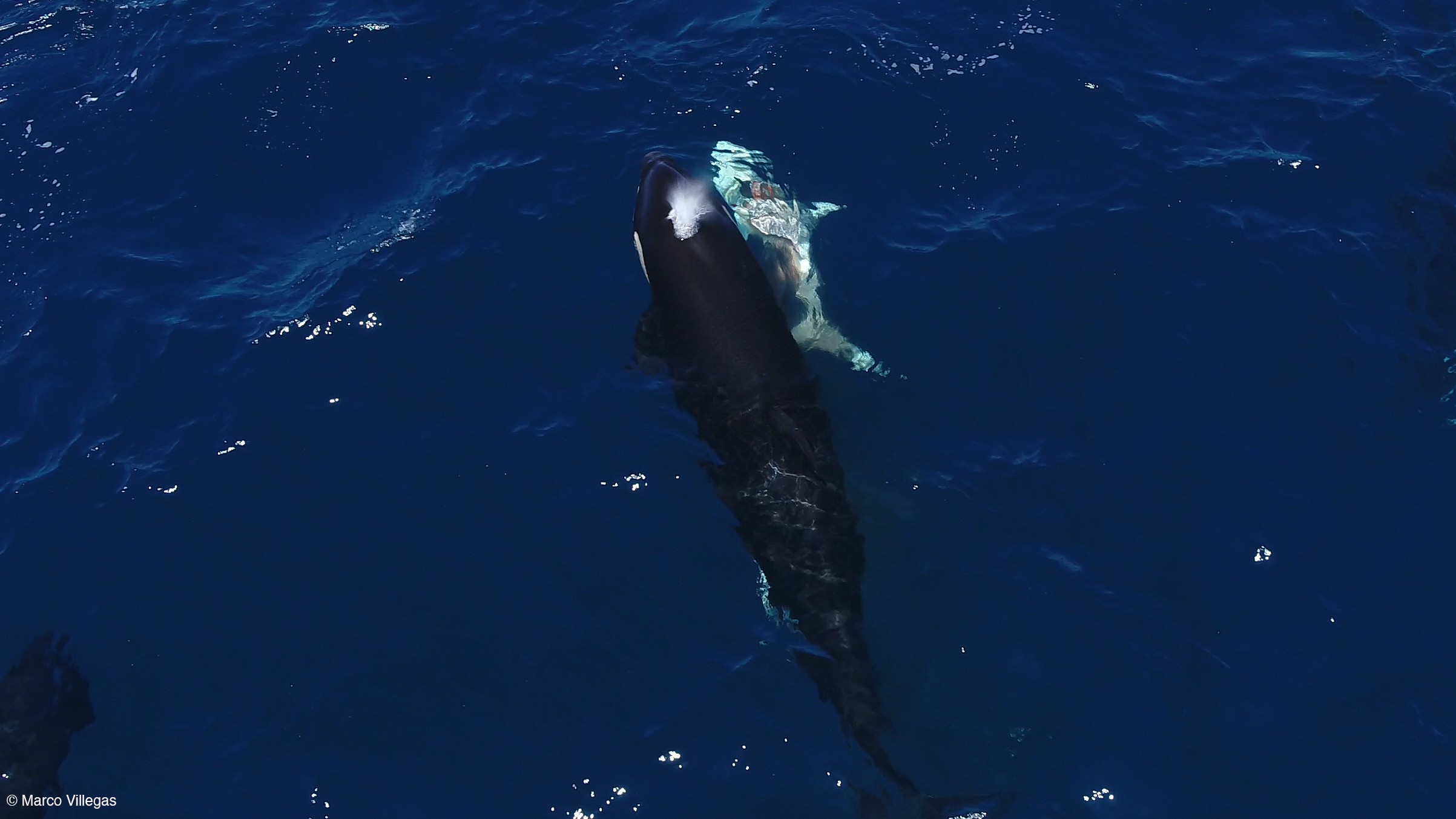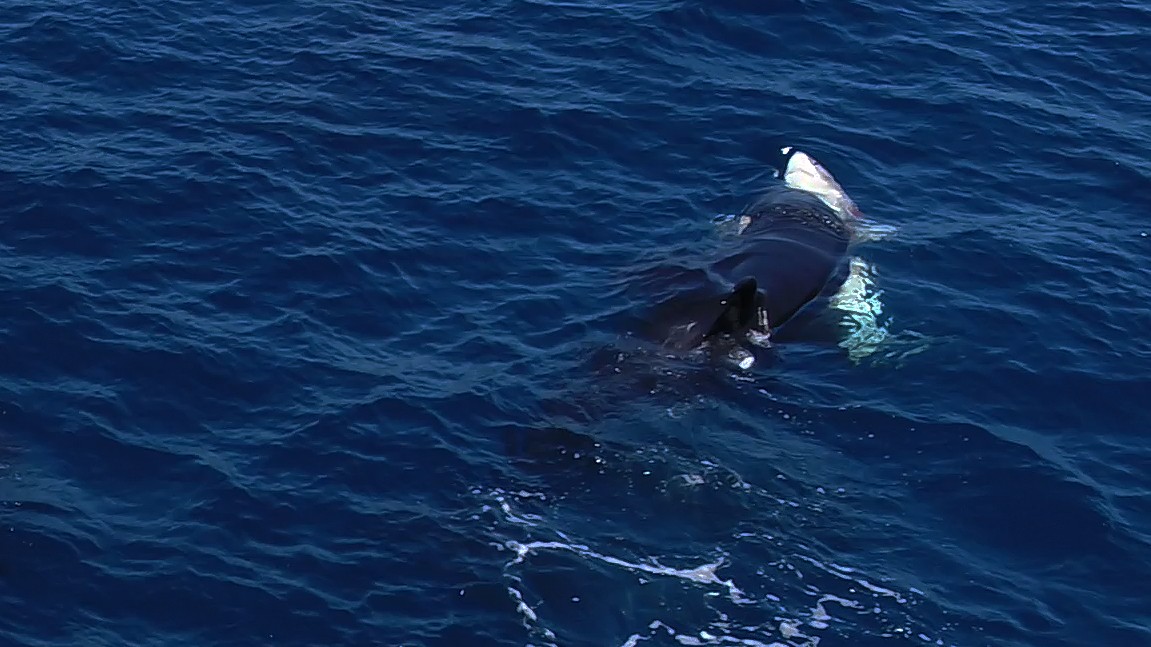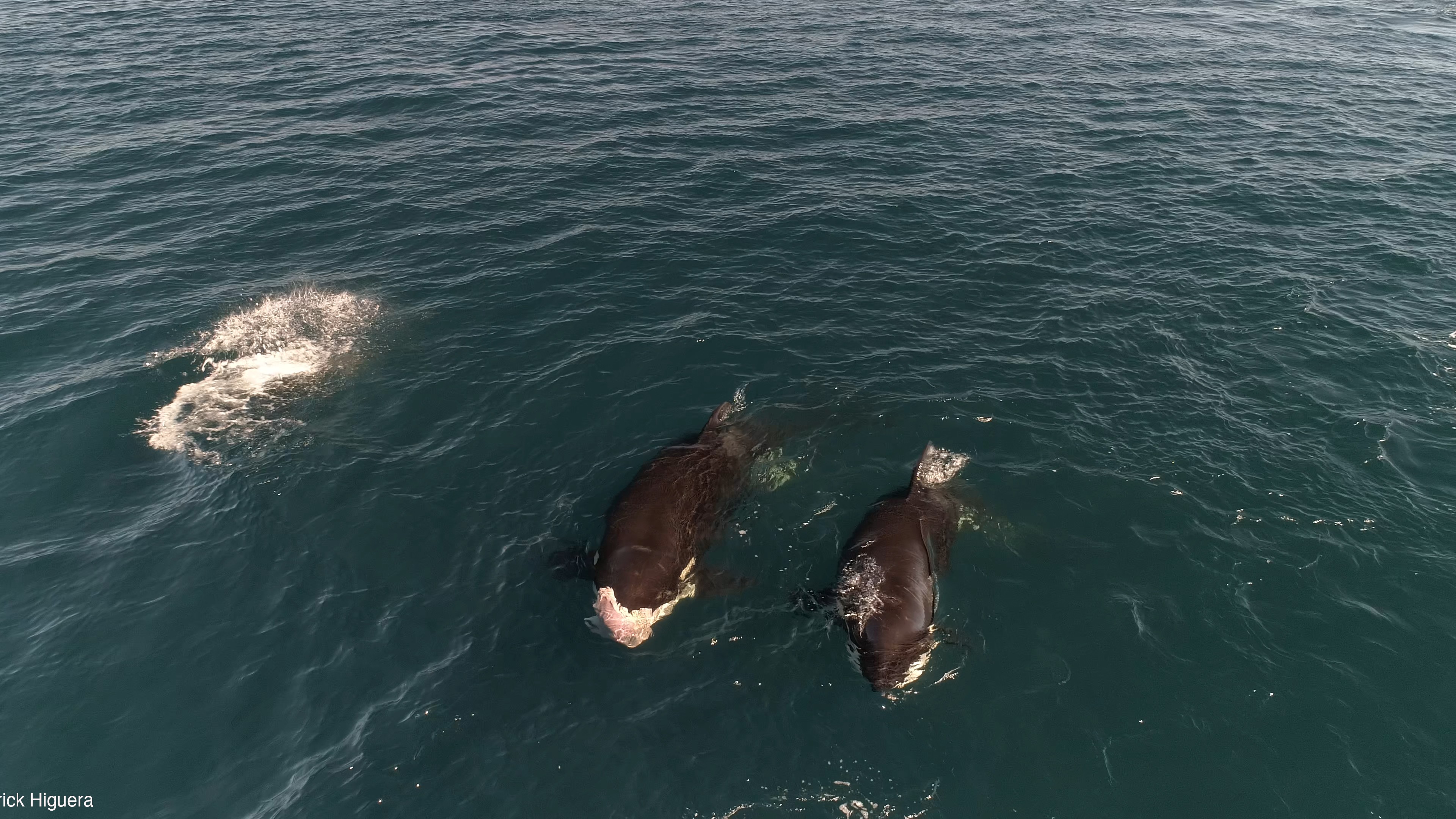Orcas in the Gulf of California paralyze young great white sharks before ripping out their livers
An orca pod that made headlines last year for gutting a whale shark has struck again, this time perfecting a technique that involves paralyzing young great white sharks to eat their livers.

Researchers have spotted orcas in the Gulf of California repeatedly attacking and feasting on the livers of juvenile great white sharks in first-of-their-kind observations.
The orcas (Orcinus orca) employed a savage-but-clever method to temporarily paralyze their prey, according to a new study. The technique involved flipping the small sharks upside down, thereby changing their awareness of their surroundings and forcing them into a trance-like state known as tonic immobility.
"This temporary state renders the shark defenseless, allowing the orcas to extract its nutrient-rich liver and likely consume other organs as well, before abandoning the rest of the carcass," study lead author Jesús Erick Higuera Rivas, a marine biologist and director of the nonprofit research organization Conexiones Terramar, said in a statement.
In three separate instances, the orcas were then observed sharing the shark livers among themselves. The attacks were carried out off the coast of Mexico by Moctezuma's pod, an orca group named after a large male member that made headlines last year for brutally slaying a whale shark (Rhincodon typus).
Orcas were already known to hunt great white sharks (Carcharodon carcharias) in some regions, including South Africa and Australia, but records of this behavior in the Northeast Pacific are extremely rare, with the last reliable sighting off the West Coast documented in 1997. Sightings in South Africa and Australia have primarily involved adult great whites, whose large proportions and organs mean more food for the orcas, according to the study.
There is only one previous report of orcas killing a juvenile great white shark. The attack happened in 2023 off the coast of South Africa by an infamous orca named Starboard; the predator gripped onto a young great white shark's pectoral fin, thrusting it forward several times before eviscerating the shark, according to the report.
The new observations, published Monday (Nov. 3) in the journal Frontiers in Marine Science, reveal that orcas attacking young great whites is more widespread than scientists thought.
Get the world’s most fascinating discoveries delivered straight to your inbox.
"This is the first time we are seeing orcas repeatedly target juvenile white sharks," study co-author Salvador Jorgensen, a marine ecologist at California State University, Monterey Bay, said in the statement. "Adult white sharks react quickly to hunting orcas, completely evacuating their seasonal gathering areas and not returning for months. But these juvenile white sharks may be naive to orcas. We just don't know yet whether white shark anti-predator flight responses are instinctual or need to be learned."

Two of the three attacks took place in August 2020, according to the study. Five female orcas from Moctezuma's pod pursued one young great white shark until it tired, pushed it to the surface, and turned it onto its back. The orcas eventually forced the shark underwater, and when they reappeared, they were holding its liver in their mouths, the researchers described. Shortly after this kill, the orcas went for seconds, chasing and gutting a second young great white.
The third attack was in August 2022 and followed a similar sequence. Five orcas, including one adult male, flipped a young great white like a pancake, pushing it to the surface and biting it. Blood gushed from the shark's gills, and its liver protruded from its abdomen enough for the orcas to grasp it.

A closer look at where the sharks' injuries were suggested tonic immobility may minimize the orcas' chances of being bitten as the orcas try to extract the liver. Choosing juveniles as prey also limits the risk to orcas, but it's unclear if orcas in the Gulf of California only kill youngsters or if they regularly attack adult great whites, too.
"This behavior is a testament to orcas' advanced intelligence, strategic thinking, and sophisticated social learning, as the hunting techniques are passed down through generations within their pods," Higuera Rivas said.
One reason this behavior has been spotted now may be that great whites only recently started breeding in Mexican waters. Rising ocean temperatures and climate events such as El Niño appear to have shifted the distribution of great white shark nurseries, and Moctezuma's pod is likely taking advantage of an increased number of juveniles in the Gulf of California.
Other orca pods in the area could catch on, study co-author Francesca Pancaldi, a marine biologist at the National Polytechnic Institute in Mexico, said in the statement. "So far we have only observed this pod feeding on elasmobranchs [sharks and rays]," she said. "There could be more."

Sascha is a U.K.-based staff writer at Live Science. She holds a bachelor’s degree in biology from the University of Southampton in England and a master’s degree in science communication from Imperial College London. Her work has appeared in The Guardian and the health website Zoe. Besides writing, she enjoys playing tennis, bread-making and browsing second-hand shops for hidden gems.
You must confirm your public display name before commenting
Please logout and then login again, you will then be prompted to enter your display name.
 Live Science Plus
Live Science Plus





